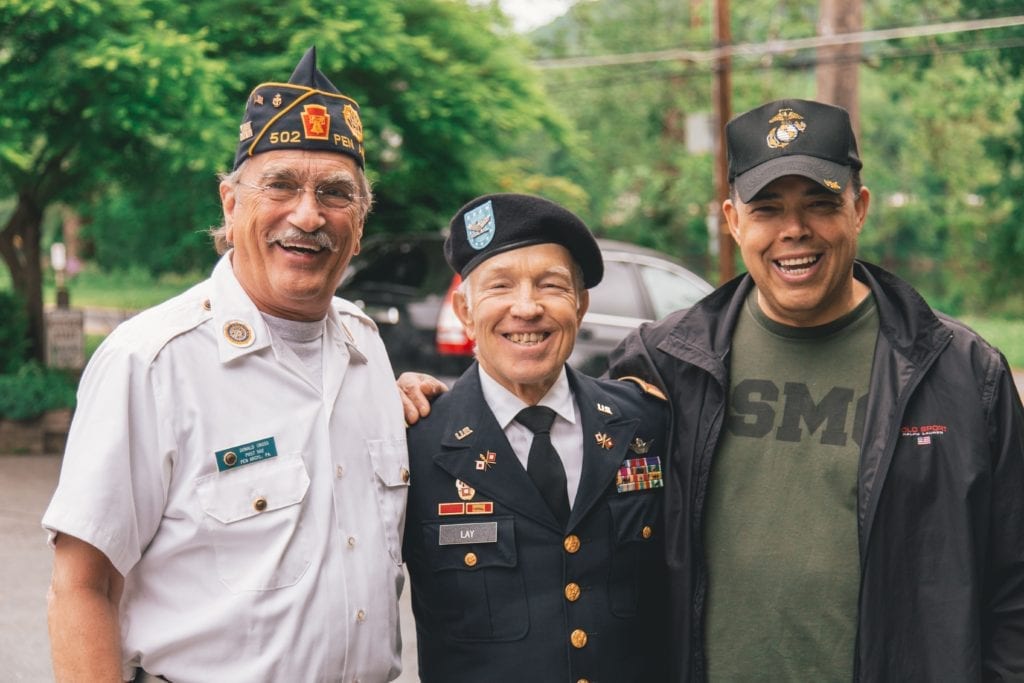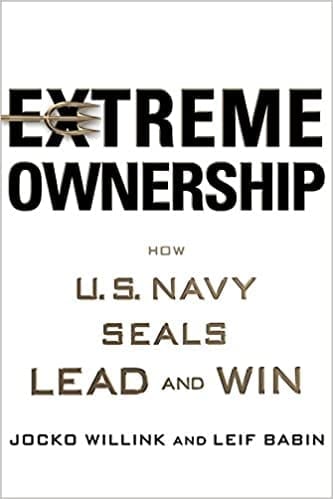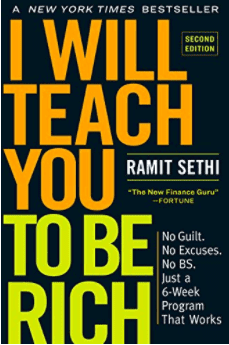The advice, resources, and programs every veteran needs to know before they leave the military.
1. Eventually you will leave the military
There can always be a concern with veterans about leaving the military. It is common to have worries about what your purpose will be after the uniform and how you will find meaning in your life after serving your country. But understand that eventually you will have to leave and that most likely you will still have a significant amount of time left in life.
The problem of figuring out what to do after the military is coming for you sooner or later.
2. No one owes you anything
You are not going to walk off your installation with your DD-214 in-hand to find a fleet of limos with executives awaiting to hand your next career on a silver platter. You are going to have to work for it. Take ownership of the process along with a big slice of humility pie.
3. The uniform is not your identity
Even though your military service may come to define much of your life experience, I would strongly challenge the notion that being a veteran is your identity. It’s likely bigger than that. Maybe it’s “leader” or “servant.” But your identity is not defined by the uniform.
4. The other 99% figured it out
Have worries about healthcare? Retirement? Where to buy your groceries after you can’t go to the commissary? The rest of America figured it out and so can you.
5. You don’t have to give up your veteran identity
It’s a part of who you are. Embrace it.
6. But don’t be annoying with it
No one likes the veteran who demands special treatment because of their status as a veteran.
7. You may need to change your appearance
And you should probably stop carrying a green notebook, Skilcraft pen, and wearing that same digital watch you got before basic. You don’t have to go get a tailored suit from Savile Row, but just like the squared-awayness of your uniform displayed your professionalism in the military, so does your appearance in the civilian world.
8. You may need a language change
Referring to people as “F***face” is probably not going to fly in your civilian job.
More importantly, embrace learning the new terminology. When you started at a new base or new unit, you likely had to learn the new lingo. Same thing when entering the civilian world. You will have to make an effort to update your vocabulary to navigate a new environment and communicate in a new setting.
9. Lose the jargon
In the army we could say “Yep, we PMCSed the 1151s and gave the 5988s to the XO” and people would understand that the head of unit logistics received the maintenance paperwork for the Humvees…but not everyone got that. Be conscious of the jargon and acronyms that you regularly use in the military and where someone not familiar with them can lose understanding.
Losing understanding loses you the opportunity you want.
10. You can work at a regular company before leaving the military
During your last 180 days on active duty, you may be eligible to work at a regular company through the DoD Skillbridge program. For a full explanation of how you can use this program to try working at a major corporation, a startup, or even be a fly-fishing guide, you can read a full post on the program here.
11. You can find ways to contribute back to your community
Your service does not have to stop after the uniform.

12. Team Rubicon can help with that
They are an excellent resource for military veterans to serve communities affected by unexpected events. They also offer programs like the Clay Hunt Fellowship which can help you identify your purpose and sense of meaning after the military.
13. So can Team Red, White & Blue
They can help you connect with local veterans for volunteer and community service activities. They also organize fitness-focused events to help veterans regain the sense of camaraderie from the military.
14. Or The Mission Continues
They organize fellowships to help veterans forge their own path of community service in under-resourced areas.
15. The VFW and American Legion aren’t just for older veterans
There is a place for the post-9/11 generation of warriors as well. We are the future.
16. One-year of LinkedIn Premium for FREE
LinkedIn offers one year of their Premium service free for veterans. With this, you can access LinkedIn Learning to build your credentials, search for jobs and connections more easily, and use InMail to build your network.
17. LinkedIn can be used to your advantage
People are on there to try and connect for business or professional purposes- that’s the point. So reach out and try and connect with people. Read what others are sharing. Engage and you may be surprised what comes.
18. But use LinkedIn wisely
It is not a “social” social media platform. It’s for professional contacts. So be wary of posting and sharing about your personal life unless it’s related to a professional context. Avoid politics. And when trying to connect to someone, always let them know why you want to connect. Don’t just send an invite.
19. You need some mentorship
You don’t know everything about getting out of the military. That’s ok. But you don’t know what you don’t know. So you need to ask.
20. Veterati allows you to search for people you may want to connect with and who want to help
You can choose someone to speak with for 30-45 minutes about career options and possibilities after the military.
21. American Corporate Partners will deliberately pair you with someone
ACP will pair you with someone for more long-term mentorship. They also host informational sessions to help you learn about certain industries.
22. The Commit Foundation can provide you with 1-on-1 coaching from people who know military veterans and can help you figure out what you want to do next
And if you really are grappling with this question, start off at the free online course from FourBlock to help you with this process.
23. ACP and Veterati, as well as many other organizations, are also available to military spouses
They often have unique challenges as well in the job hunt, and employers understand that the attributes they bring are similar to veterans.
24. Your resume needs some work
It’s not as easy as taking your bullets from your military evaluation report and putting them into a resume. That’s not going to fly. You likely have too many acronyms, too much jargon, and not enough focus on quantifiable results. People don’t care about your level of responsibility nearly as much as they care about what you did with it.
You can work with one of the aforementioned mentorship programs to have a mentor look over your resume.
25. Echelon Front Legion, a military talent acquisition company, has an excellent suite of resources
Heard of Jocko and Leif Babin? Their book, Extreme Ownership, is a huge bestseller. They are co-founders of EF Legion and EF Overwatch along with their former teammate from the SEALs, Mike Sarraille.
Their site has templates and sample resumes based on military specialties, that you can find here. You can learn more about what this company is doing through this article.
26. Networking is likely not your forte
You likely didn’t have to network in the military. And if you did, it was easier than in the civilian world. Everyone was already on the same team and is (at least in theory) supposed to work together. The dynamic in the civilian world is different, because you be trying to connect with someone outside of your organization or even industry.
It’s different, and harder.
27. But networking is critical to the job junt
LinkedIn research shows that 70% of new hires already had a connection at that company. For more competitive companies, the number can be 95%. Submitting your resume online is unlikely to land you a job. You have to network.
28. The Vet Net is real
The camaraderie of military service doesn’t end after the uniform comes off. As you think about what you are going to do next, reach out to veterans in industries or companies you are interested in. They will likely take your call and want to help.
29. There are networking groups just for veterans
You can easily find some on Facebook or LinkedIn, but you may also want to check out Meritorious. They are an exclusive network for high-performing veterans and military spouses.
30. The Vet Net also doesn’t end at the border
If you deployed overseas, you likely worked with another country’s military at some point. The camaraderie of arms and those who served for the country is recognized everywhere. Don’t be scared to reach out and connect with veterans overseas also.
31. Lean into the communities you already have
If you were a former Surface Warfare sailor, start in that community first. Find people on LinkedIn who used to serve in your unit and reach out to them.
32. Networking is a two-way street
The best way to network is by being able to offer the other person benefit as well. They provide you something, but then you provide them something back. It’s not meant to be a single person providing all the value.
33. Your value at the start will be limited
That’s ok. Because of this, be respectful of the time and demands of others. If you are reaching out to someone but don’t have a lot to offer in return, do your best to limit the drain on their time. Start with something like this:
“John- I found you via a search for Army veterans working in Houston in energy. I’m transitioning for the Army myself in 6 months and am interested in the energy sector. I would greatly appreciate grabbing 15-20 minutes of your time to learn more about your work.”
For full details, including word-for-word scripts, on this process, check out this article from Ramit Sethi, NYT Bestselling author of I Will Teach You To Be Rich and a successful self-built entrepreneur.
34. Providing free value is a good way to get noticed
What do I mean? I mean starting off the relationship by having already done something in the interests of someone, or being willing to go the extra mile for them.
I’ve made connections with other veterans through this blog simply by writing about their company or program and then coming to them with an article in rough draft. They always appreciate the extra boost and then want to help.
I recently spoke with a Marine who is getting out and he landed a dream job at a private equity firm in Hawaii (his dream job) by offering to work for free for a few months. If you line this up right, you can do it via the DoD Skillbridge program. But if you are trying to connect with someone (especially above your pay grade), it’s way easier when you can come to them with value they didn’t expect.
35. But people do want to help
Reaching out to someone while you are still in or a recently transitioned veteran is easier than if you wait until later. Veterans are well-respected and people want to help.
36. Networking can happen ANYWHERE
It doesn’t have to be a cocktail hour at a local convention center. Networking events like this are obviously a way, but not even close to the only one. There’s direct connections, social media, LinkedIn (obviously), and any other way you can imagine that people interact. I landed a role as an advisor to a marketing company because the CEO and I connected on Reddit. It can happen anywhere- you just have to be looking.
37. The interview process may be intimidating
Jobs in the military rarely have an interview as part of the process, so most veterans have little to no interview experience. The good news is that you likely have some characteristics built from the military that can help you be successful in an interview. Timeliness, confidence, and respect will help you in interviews and these are attributes that veterans usually have in spades. You likely need polish and above all, practice.
38. You need to be able to express your value
It’s amazing that you were a battalion commander, or led a Navy SEAL platoon, or flew the F-22. Great. Now what does that do for your next organization after the military? What value do those experiences bring them? That’s what you need to be able to communicate.
39. You need to get comfortable talking about “I” and not “we”
This one is tough. We were always taught to think of our accomplishments in the military based on what our team did, not what we did as an individual. But a future employer isn’t hiring your squad or platoon, they are hiring you. They need to know what makes you unique and what makes you valuable as an individual.
40. 33% of veterans are underemployed, and 15.6% more likely to be so than civilians
According to a big study done by LinkedIn, “Underemployment is when a person engages in work that doesn’t make full use of their skills and abilities.”
Veterans can easily fall into the “just land a job” mindset after the military, but there is a lot more opportunity out there for you than that.
41. The DoD transition process is only going to help you so much
It’s short and only scratches the surface. And as well-intentioned as the instructors are, they aren’t world-class experts on career changes and career hunts. You have to take charge of the process yourself.
42. The USO Pathfinder® program helps keep you on pace during your transition from the military
You will be assigned a counselor who can help you with things beyond what the DoD TAP counselors can, like finding community resources in your home after the military or evaluating healthcare options.
43. You can apply for VA benefits online
Through eBenefits you can apply for VA benefits like healthcare and the GI Bill.
44. The toughest part of the VA are the first layers
Granted, this is based off my experiences so it’s not from an in-depth study. But when you can get to a healthcare provider, they are great. It’s the 1-3 layers of administrators you may have to go through to get there that can make the experience…awful.
45. Your personal care is now in your hands
Unlike in the military, where your care was usually prescribed to you and the medical system is designed to raise readiness levels, you have to learn to be your own advocate when navigating the VA and other resources. Remember, the VA is there to work for you so don’t be afraid of asking them to do that.
46. Part of personal care is taking care of your finances
Things will change for you after you leave the military. There may be unexpected costs and nuances that you don’t know about. Luckily, there are some great resources out there to help you get your financial house in order before you grab your DD-214.
Military Money Manual is run by a current active-duty Air Force officer. He puts out great information about maximizing credit card benefits as a service member, budgeting, and real estate investing.
The Military Guide can also be a great place to learn more about how your finances might be affected by your transition from the military.
47. Still in? Help your fellow service members with their own finances
If you want to help other service members learn how to take control of their finances, check out Life Skills for Soldiers to find training programs you can use in your unit.
48. Go through the disability process with the VA
Applying for disability doesn’t make you weak or a leech. It’s better to go through the process, get possible issues documented and receive nothing, than it is to say nothing.
Doing the latter could result in you having serious frustrations down the road when something starts to flare up but you can’t get help for it. Swallow your pride and do it (learn about the basics of the process here).
49. And do it before you leave the military
Once you leave the military, this all gets harder. It’s way easier for the VA to look at your records while you are still in and connect any medical issues with your military service. Once you are out, it gives them more room to deny you because there is more possibility that your issues came after service. It is absolutely in your best interest to take care of this stuff before you leave the military as you will likely start an uphill battle after that.
50. Veteran Service Organizations (VSOs) can help
VSOs are certified by the VA to help veterans apply for many common benefits. Before you leave the military, you should stop by a VSO office to see how they can help you with VA claims. For a full list of VSOs, visit here.

51. You may be eligible for five years of free healthcare from the VA
If you deployed to a combat zone, you may be eligible for VA healthcare for the first five years after your service. To see if you are eligible, visit the VA website here.
52. It’s ok to seek help
You may have some invisible scars. That’s ok.
Veterans can access the VA Crisis Line at 800-273-8255
Headstrong is also a nonprofit that can help you work through mental health issues.
53. There is also a growing number of ways to heal through alternative methods
Veteran’s Path helps veterans heal through mindfulness and meditation.
Heroic Hearts Project may be able to sponsor an opportunity for you to receive potentially life-altering treatment through the use of psychedelic therapy.
Based in Folly Beach, South Carolina, the Warrior Surf Foundation help veterans improve mental health through surfing. And if you are a disabled veteran, One More Wave can help get you a custom board to meet your needs.
Live American Yogi is a veteran-owned yoga apparel brand that focuses on yoga and mindfulness as a practice.
54. Physical fitness is now on you
No one is going to be holding you accountable for your fitness anymore. There’s no more fitness test and your PT scores will not be on your evaluations at work. But this doesn’t mean that you should let that part of your life fade away. The great part is, now you can do what you want to do. You can organize your fitness around your preferred activities and what keeps you most healthy.
55. But someone’s PT abilities aren’t as important outside the military
I spoke with a former Tier 1 operator who went to business school. He was expecting that he and the other SOF guys would be the smartest people. Then he met a former Army logistics officer who he said, um, “didn’t quite look like he was in the military.” But that guy was heads and shoulders above everyone else when it came to intellect.
56. The Yellow Ribbon Program is amazing for higher education
Schools can elect to match up to the maximum payment from the GI Bill, which the VA will then match. That creates some serious extra money for your education. To learn about this at top MBA schools, check out this post.
57. But schools also have endowments just for veterans
Some schools have endowments worth millions of dollars just to help veterans attend their school. Click here to see a list.
58. And so do top MBA programs
Pursuing a Master’s in Business Administration is a popular option for a lot of veterans. These schools have scholarships just for veterans. To learn more about pursuing an MBA after the military, start here.
59. There’s even a hiring conference just for veterans at top MBA programs
Operated by Bradley Morris, a military talent recruiter, the MBA Veterans Conference is an annual event that just for veterans at top MBA programs to connect with companies who want to hire veterans.
60. Interviews don’t need to be intimidating
You can crush that interview and land the job of your dreams.

61. USC has a Master’s of Business for Veterans
The USC MBV is specifically designed to meet the needs of veterans looking to level-up the next phase of their career.
62. You can share your transition journey with elite athletes
The Tuck Next Step program is a general management certificate program designed for military veterans and elite athletes who are pivoting into their next career outside the military or athletics.
63. The GI Bill works overseas
If you have a desire to live or work internationally, you can absolutely use your GI Bill overseas. You can listen to a former Special Forces veteran talk about getting his MBA in Spain on the Veteran (Semi) Professional podcast here or read this post about a former submarine officer who went to London Business School here.
64. But you also don’t have to use it for a traditional degree
You can get certified to be an outdoor guide, learn to fly, become a chef, or just about whatever else you want to do.
65. Prior enlisted can absolutely attend top colleges and universities
Service to School can pair you with a mentor to help you through the application process. Their unique VetLink program is also exceptional at helping enlisted veterans access higher education.
Next Step Inbound is run by former enlisted Marines who are now at Ivy League schools. They want to show the path to enrollment at top colleges for enlisted veterans.
66. Warrior-Scholar Project can help you prepare
They offer one and two-week courses to help veterans prepare academically for starting at a top university.
67. You can also learn to code for free
There are a number of ways for you to get started in coding for free or little cost.

68. Veterans can make great entrepreneurs
Ever heard of Nike? Wal-Mart? FedEx? All mega-corporations, all started by veterans. Time in the military provides you with leadership experience, an understanding of risk, and a tenacity for getting things done. All this compounds to make someone well-suited for entrepreneurship.
You can learn more about the paths to entrepreneurship for veterans here.
69. Vet to CEO can teach you how to start or buy a business
This is a non-profit that puts veterans through a 7-week online program that covers all aspects of entrepreneurship.
70. Connect and learn from veteran entrepreneurs in your city
Through Bunker Labs, you can connect with other entrepreneurially-minded veterans in your area, as well as use Launch Lab Online to learn more about your idea and if entrepreneurship is the path for you.
71. Bunker Labs also has a Veterans-In-Residence program to help veteran entrepreneurs get started
Even with nothing more than an idea, you can enter this program and receive a suite of support from Bunker Labs. And the results are amazing:
Over 500 startups to date
-89% of whom have reported the program accelerated their growth
-44% increased their run-rate revenue
-38% hired additional employees
-23% raised funding between months 1-6
72. Learn entrepreneurship at one of the best business schools in the world
Stanford’s Ignite program is specifically for helping post-9/11 veterans pursue their entrepreneurial goals. They significantly reduce the cost of attendance for veterans.
73. Or connect over a weekend
Patriot Bootcamp provides exclusive programming and resources for veteran entrepreneurs, as well as military spouses.
74. There are even venture capital firms focused on funding veteran-owned businesses
75. Work with lenders who want to invest in veterans
76. Or you can buy a company
VetFran connects franchises with aspiring veteran entrepreneurs looking to buy into their name brand.
Are you thinking of buying a business? I recommend taking a look at Acquira and its accelerator as a way to get started. They place you in a cohort with other business buyers, help you vet deals, and then help you put together the financing to close on a business. Take a look HERE and use the link to get 10% off.
77. The Veteran Business Project is a way for people interested in selling their small business to find veterans interested in buying one
Surprise: this is a lot more approachable than you may think.
78. Or start an Amazon delivery service
Amazon wants veterans to run their delivery partners. They know that veterans bring hand-on leadership attributes that can make these businesses successful. They fronted $5 million to offset the startup costs, meaning that veterans can start for as little as $10,000.
79. Or even get into real estate investing
That’s something you don’t need to wait for leaving the military to do, either. Just ask David Pere over at From Military to Millionaire.
80. But if you can also use a veteran hiring company to find a job
There are a number of firms that focus exclusively on working with companies to bring veteran talent to their organizations. To learn more about this process and what you should think about when working with one of these firms, read this post.

81. Or you can use Google
Input your MOS and “jobs” into Google to find openings relevant to your military experience.
82. Google may also sponsor travel to conferences
Google may provide up to $1,000 for you to attend a conference or seminar as part of an initiative to help underrepresented populations, including veterans, seek opportunity in tech and business.
83. Lots of big companies have hiring programs just for veterans
Amazon, Accenture, and Johnson and Johnson to name a few.
84. Deloitte even has a special weekend-long course
Deloitte runs the Career Opportunity Redefinition & Exploration (CORE) Leadership Program which helps armed forces members and veterans translate their skills, knowledge, and experiences for the civilian work environment.
85. Banks have programs to hire veterans
Wells Fargo, Bank of America, Goldman Sachs, and J.P. Morgan all have veteran hiring initiatives which you can learn more about here.
86. Or connect with veterans in NYC
Veterans on Wall Street runs informational events and hosts networking opportunities to help veterans enter and succeed in the financial services sector.
87. And Breakline can help get you into tech
Breakline has courses to prepare veterans for a career in the tech industry. But not just interview and resume help, they actively try and land you a job.
88. Hilton Honors™ can help you with your job hunt
The Hilton Honors™ Military Program can provide you with 100,000 hotel points to help you as you travel to look for a job or move to a new location after the military.
89. Or you can go back into the federal government
Your military service will give you a leg-up in the federal hiring process. Veterans are widespread throughout the federal government. To look for positions you may be interested in, visit USA Jobs.
HillVets can provide you free housing and access to a top-notch network in the public sector if you think you may want to go into public policy
90. Interested in medicine?
Read this post to learn more about the path to medical school as a veteran. Check out Dental Veterans to learn about a former infantryman’s path to dental school.
91. And the Reserves are still an option
There are lots of benefits, including healthcare, additional pay, and continued service.
Learn more about why I didn’t choose the Reserves here.
92. You can still use the VA loan
If you are interested in buying a house as a veteran, you absolutely need to know about the VA Loan. To learn all about the ins and outs of this, I recommend reading this post, from Military to Millionaire, run by an active-duty Marine who is also a successful real estate investor.
93. Think about taking some time off after the military
Military life can be difficult, both for veterans and their families. You don’t have to immediately rush into your next career right after you pick up your DD-214. It’s ok to take some time to relax, reflect, and connect with family and friends. You can learn more about how to do this here or read this article I wrote for The Military Guide about how I planned eight months of travel after leaving the military.
94. There are groups that can take you into the wilderness for a weekend…
95. …or a week
96. …or even a month
97. …and can even help you hike the AT or bike across America
98. You have a lot ways you can succeed
You are leaving a job and can have the opportunity to cash in as many as 60 leave days to maintain your pay and benefits while you move and look for a job. Most people leave a job and don’t have any of that.
You also have all of these resources listed. That can give you a serious leg-up.
Take advantage of these opportunities to make the most of your life after the military.
99. Once you get to your next position-pay it forward
The bonds of military service don’t end after leaving the military. Once you get out, look behind you and help those who are about to go through what you did. Reach out to those still in and help them out. Get on a call and let them ask questions.
100. Never stop serving
Your mission won’t stop. It just may look a little different, and so may you.
Go crush it.
Related Articles
Veterans! You have the gear for a successful civilian career
Veteran, here’s what to do — and not do — in finding a job
You left the military and found a job, now hear this . . .
Please note: GI Bill® is a registered trademark of the U.S. Department of Veterans Affairs (VA).
This page contains affiliate links to Amazon and other businesses. Your purchases through these links contribute to keeping this site going.



